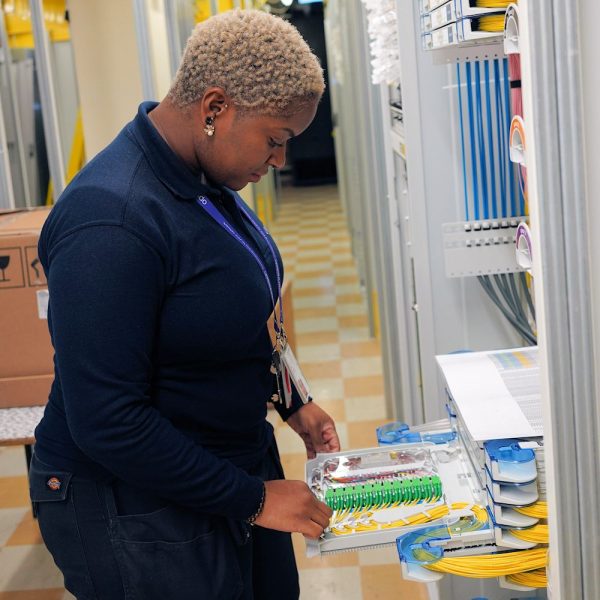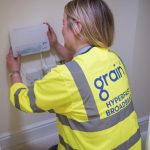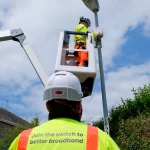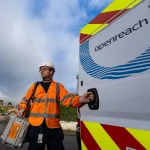Ofcom Rejects Openreach Request to Tweak UK QoS Targets UPDATE

Ofcom has today decided NOT to change how it calculates one of Openreach’s regulated Quality of Service (QoS) standards for Ethernet and Dark Fibre repairs, which would have replaced the current “on-time repair” (OTR) target with a “mean time to repair” (MTTR) alternative.
The regulator currently sets Openreach’s annual targets for repairs and installations to help ensure a certain level of performance. One of those targets states that, each year, 94% of Ethernet and Dark Fibre faults must be repaired within the time stipulated in its contractual service level agreement (SLA).
However, in recent years Openreach has improved their repair process, which has caused a reduction in faults that are easier to fix (i.e. the operator’s performance has improved, not worsened). But this means the issues that remain tend to me more complex and thus take longer to fix, which could make the regulator’s target “increasingly more difficult to meet, even though the customer repair experience overall has improved.”
Advertisement
In its proposal, Openreach suggested a change to the underlying metric in the standard from being based on the percentage of orders meeting the contractual OTR period to a MTTR measure. Openreach also proposed excluding force majeure (MBORC – Matters Beyond Our Reasonable Control) events and customer faults from the standard. Further, Openreach proposed it should be required to track performance against MBORC faults through a new KPI alongside continuing to report against all existing KPIs.
Ofcom’s original consultation appeared to be sympathetic to some aspects of Openreach’s proposed change, although after listening to industry feedback the regulator has ultimately opted to keep things as they are – at least until the next major wholesale fixed telecoms market review.
We have decided to maintain the current on time repair (OTR) measure for the remainder of this WFTMR period. This is because:
• While we accept there has been a change in the fault mix that warranted review of the existing standard and that a mean time to repair (MTTR) based measure offered potential incentive benefits, we did not consider that the removal of ‘Matters Beyond Our Reasonable Control’ (MBORC) from any Ethernet QoS measure was appropriate through a narrow direction change in a mid-market review period.
• In response to our proposed QoS standard for an MTTR based measure, respondents raised concerns as to whether the revised standard maintained the same level of incentive on Openreach to deliver timely repairs as the OTR standard. Openreach also raised concerns that the inclusion of MBORC increased the risk of non-delivery.
• We have therefore decided to maintain the existing OTR measure. We consider that despite the changes in the fault mix overall the existing standard remains deliverable by Openreach through the remainder of the control period.
• We will undertake a full reappraisal of the standard and the approach to MBORC in the next [market review].
Openreach will now have to ensure that they can continue devoting sufficient resources to repairs, which Ofcom said “should be sustainable“, at least until the next market review when this will come up again. The regulator also acknowledged the concerns of stakeholders that their proposed standard for an MTTR measure “may not maintain the same level of incentive on Openreach to deliver repairs as the current standard“.
An Openreach spokesperson said:
“We’re pleased that Ofcom has opened the debate about how the repair standard should be calculated in light of continued service improvements and technological advances. While industry wasn’t able to reach agreement on what this change should be now, we note that Ofcom will fully reappraise things in the next market review. In the meantime we continue to place utmost importance on delivering high quality of service for our customers – delivering strong levels of service on our Ethernet and dark fibre portfolio and continuing to exceed all of Ofcom’s minimum service targets.”
The vast majority of industry respondents sought to maintain the current approach.
Advertisement
UPDATE 4:16pm
We’ve added a comment from Openreach above.
Mark is a professional technology writer, IT consultant and computer engineer from Dorset (England), he also founded ISPreview in 1999 and enjoys analysing the latest telecoms and broadband developments. Find me on X (Twitter), Mastodon, Facebook, BlueSky, Threads.net and Linkedin.
« Full Fibre UK ISP Fibrus and eero Router Partnership Adds Echo Dots






















































Comments are closed